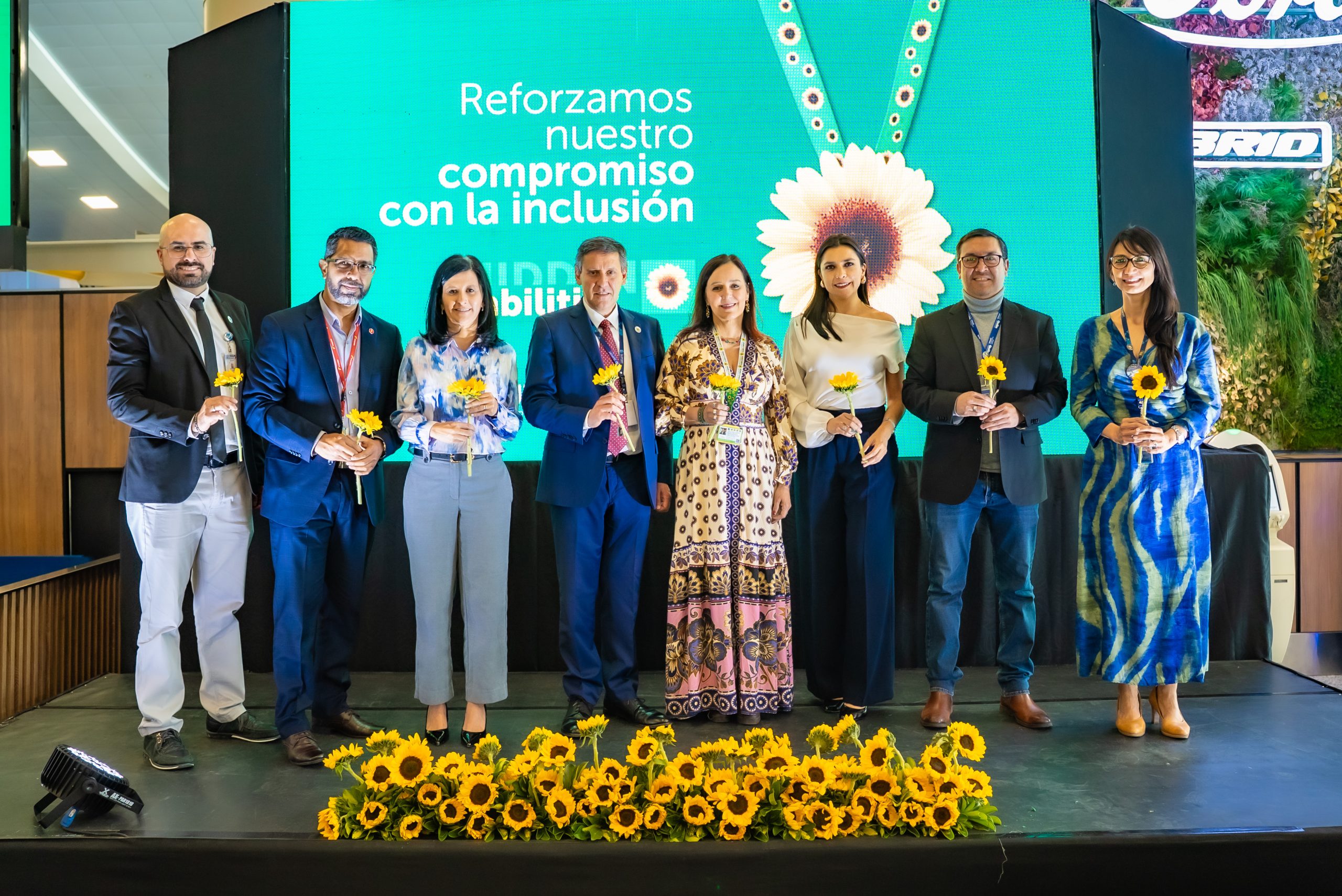Quito Airport joins the Sunflower Program to enhance inclusive support for passengers with hidden disabilities

- Passengers with hidden disabilities can request a Sunflower lanyard free of charge and without the need for medical documentation.
- The lanyard discreetly communicates to airport staff that the wearer may require more time, clearer explanations, or adapted treatment to meet their needs.
- More than 900 staff members have been trained to provide more conscious service, in a process that included specialized training and direct participation of people with non-visible disabilities.
Quito’s Mariscal Sucre International Airport announced its incorporation into the international Hidden Disabilities Sunflower program, an initiative aimed at improving accessibility and travel experience for people with non-visible disabilities such as autism, anxiety, epilepsy, fibromyalgia, diabetes, among others.
🌻 Why is it important and how to access the program?
In dynamic environments like an airport, people with non-visible disabilities may have special needs that are not always obvious to those providing passenger assistance. The Sunflower program is designed for these passengers who could benefit from care that considers these needs during their journey through the airport.
How does it work?
Individuals who need it may voluntarily request a sunflower lanyard, available at the information desk in the departures area.
The lanyard is provided free of charge and without the need to present medical documentation. This discreet symbol signals to airport staff that the wearer may require more time, detailed explanations, or simply more empathetic treatment. While it does not grant benefits such as priority lines nor exempts passengers from going through all processes and controls, it facilitates more conscious and adapted service to the passenger’s needs. The guideline for airport staff is simple yet powerful: “How can I assist you?”
🤝 An airport community committed
The program’s implementation has been possible thanks to the collective commitment of the entire airport community, which recognizes that continuously improving the passenger experience is a shared responsibility.
From its initial stages, the process was participatory: Quiport, as the concessionaire, promoted dialogue spaces with representatives of airport stakeholders such as airlines, security, immigration, and commercial tenants to ensure coherent, comprehensive, and sustainable implementation.

🔎 Joint diagnosis and concrete actions
As part of the development, a tour of the facilities was carried out with people with different disabilities, in collaboration with the Rett Ecuador Foundation, to identify possible opportunities for improvement in signage, infrastructure, and customer service. Input was also incorporated from the initiatives of the Metropolitan Public Airport Services Company (EPMSA), which had been working on care protocols for people with autism at security checkpoints.
In addition, Quiport staff already had prior training in sign language, further strengthening an institutional culture that is sensitive and prepared.
👥 Training with real impact
The training component was key: more than 900 people from 15 companies operating at the airport participated in specialized training sessions, led by experts, a representative from an airport experienced with Sunflower, and individuals with non-visible disabilities who shared real-life experiences and practical recommendations.
This effort adds to the continuous improvement processes led by the Passenger Experience Committee, which permanently promotes training in service quality and customer care.
🌍 An approach aligned with a long-term vision
The incorporation of the Sunflower program is not an isolated achievement. The terminal has previously been recognized with the Progressive Inclusive Seal from the Municipality of Quito and is the first in the country to obtain Level 1 Accessibility Accreditation for Airports (AEA), granted by the Airports Council International (ACI).
🗣 Statements
Ramón Miró, President and CEO of Quiport:
“One of the greatest satisfactions I take from implementing the Hidden Disabilities Sunflower program is witnessing that the entire airport community is genuinely committed to learning how to effectively engage with individuals with hidden disabilities. We believe that true excellence in service is rooted in empathy. We are proud to have a team that is sensitized and trained to provide real support to those living with non-visible conditions. This program not only transforms the way we serve but also the way we understand inclusion.”
Flavia Callafange, Regional Director for Latin America of Hidden Disabilities (Sunflower):
“I would like to express my sincerest gratitude for the effort and dedication you have put into the HD Sunflower project. We are very happy that Quito Airport has joined this important initiative. This is a significant step towards a more inclusive city and country. I appreciate your continued commitment and collaboration in this project.”
Isabel Maldonado, Executive Director of Rett Foundation:
“At Rett Foundation, we had the opportunity to accompany Quiport in this process, which demonstrates how companies can lead real transformations toward inclusion. The participation of people with disabilities in all spaces is key to guaranteeing their rights. We applaud and congratulate this initiative, which marks an important step toward more conscious, empathetic, and accessible care.”
🌻 A symbol that opens doors
In an airport recognized for its operational, environmental, and service excellence, inclusion today is a key pillar in the continuous improvement of passenger experience. The implementation of the Sunflower program reinforces this commitment, offering a tangible tool to make air travel a more human, empathetic, and mindful experience.
